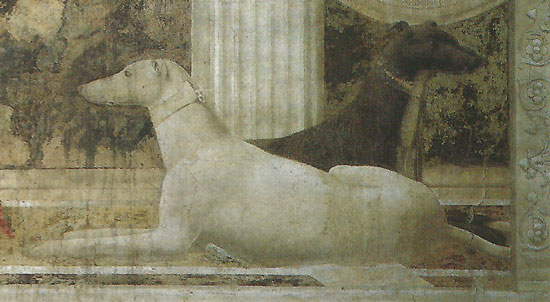supplemental notes, pt.i
I not only quit my job: I abandoned my Great Project.
I had been working on a Great Project for a number of years, a vast book in which I made an attempt to read art history from the quattrocento Renaissance to the Baroque as a history not of deep structures or forms of thinking or god help us movements in the human spirit but simply as a history of ornamentation, deriving the structural (emerging, if you like, probabilistically) from the chaotic accretions of decorative marginalia. It ranged over, to give merely a flavour of its extent, decorative motifs, friezes, architectural embellishments, floors, mosaics, marquetry, and medals; costume and jewellery; palaeography, typography, page setting in the early presses, spoglia, inscriptions, etymologies, philology, technology, emblems, rebuses, ornamentation in music. Everything trivial, superficial, gratuitous, redundant.
As Great Projects go, mine was a bit confused, and was, I suppose, mapped on to some messiness of mind generally that unsuited me for Academia, in which you are expected to think tidy, in the main.
Ted Kelley doesn’t live in Norbiton, he lives in Canbury in a big house near the park. He came to London years ago and married well, into a family that cut stone for monuments. He expanded the business and runs it still now, although you so often see him wandering about Norbiton with his dogs that you’d suppose him to be retired.
He’s a silver-haired Spaniard of an Irishman; sixty-years old, tall, charismatic, brawny, controlled. He has about him a sense of access to powerful worlds, a public capital of available mechanism, latent resources. Somewhere or other he could walk into offices, workshops, building sites, and make people jump.
But there is an odd sense of divorce between this bigger world where he is someone—large house, business, who knows what else—and his atom of self, wandering around Norbiton with his electron shell of dogs, as though he has moved beyond wanting power, or needing it, or caring much about it; has moved, even, beyond noticing its weight; but—perhaps this is where the unconscious menace he projects is located—you feel he would most certainly notice its absence, and would know how to go about grappling it back with brutal efficiency if he ever lost it.

—electron shell—
– Sigismondo Malatesta, and dogs, Piero della Franscesca

When I asked Hunter Sidney if he didn’t think about going back to his first novel he just said, no, that would be like going back to Three-Mile Island or Gruinard or Chernobyl: the novel had contaminated the story.
When I asked him what he meant by that he said that the moment you put someone in a novel, the fact that they are an archaeologist or a taxidermist or a musician or whatever it was, they instantly took on a life of their own; an archaeologist is not just an person with a day job; his job is a metonym of hidden secrets, the sway of the dark past, and so on and so on. It was unavoidable. Novels had a way of writing themselves, anything you can say about anyone becomes hypercharged in novel space, becomes a great gravitational vortex which sucks you in. You like to think of novels as more grown up than fairy stories, but they were for the most part equally simplistic and not so much fun. A good writer—very few of those—would have the strength not to be dictated to by the form, and would chart his unstable path between the powerful attractors. He, Hunter Sidney, was not such a writer; he had been sullied by the experience and he didn’t bother with it any more.

